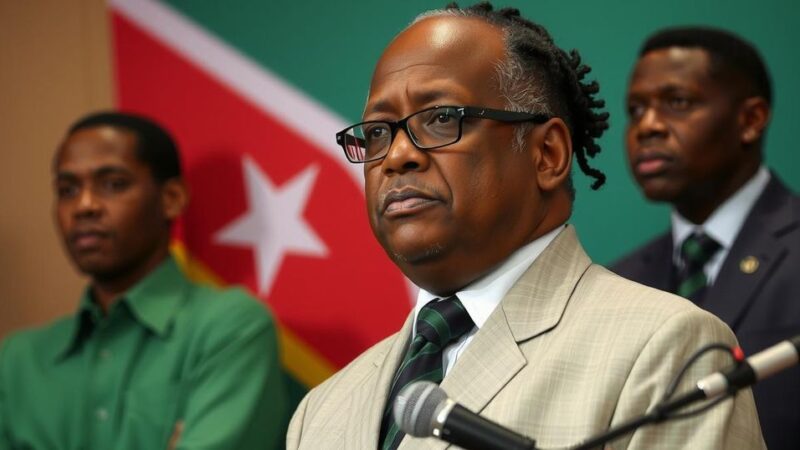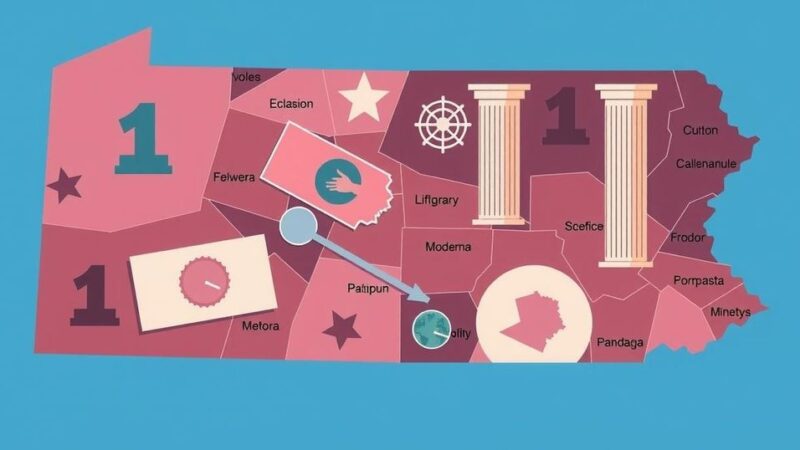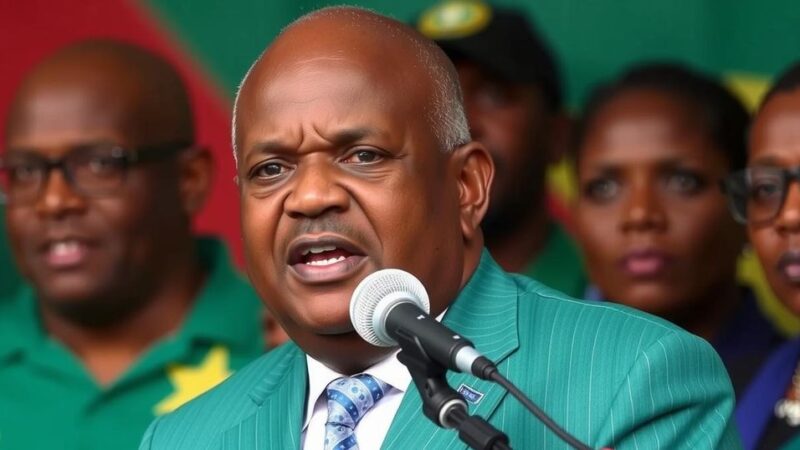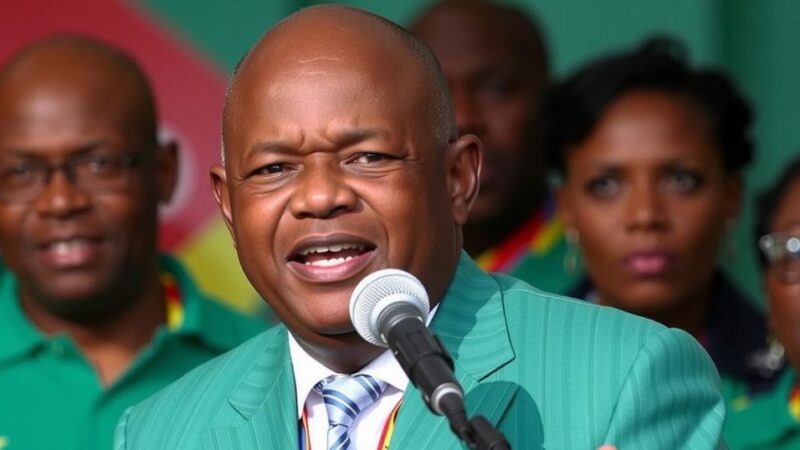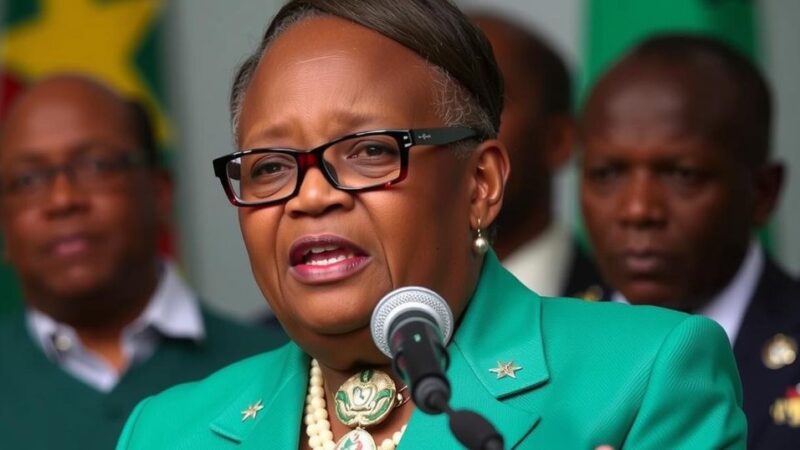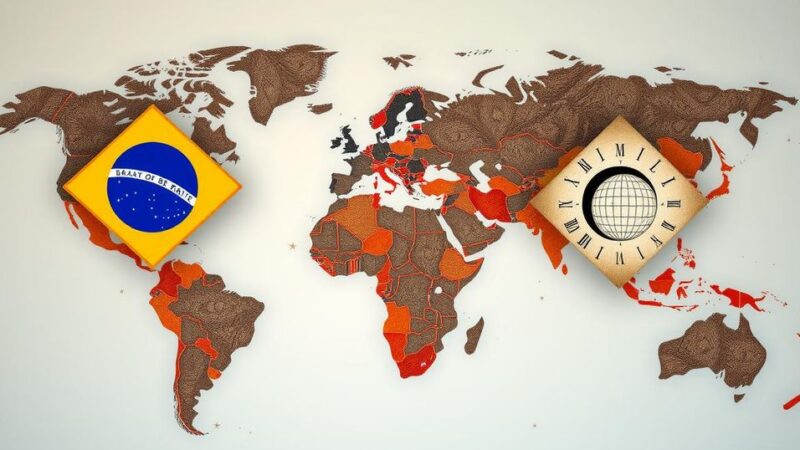Ghana faces an illegal mining crisis known as “galamsey,” which threatens the environment and economic stability as elections approach. Miners risk their health for low incomes while cocoa farms suffer from pollution. As candidates prepare for the election, they must address the urgent need for sustainable mining practices and create job opportunities to combat poverty.
In rural Ghana, illegal mining, locally termed “galamsey,” poses significant threats to the environment and economic stability as the nation approaches its presidential elections. Miners, like Frank, toil under harsh conditions in their quest for gold, revealing the dire employment situation that drives them to such perilous activities. The candidates vying for power must address this urgent issue, as it has repercussions for both local populations and the environment, while demonstrators call for decisive action against galamsey’s destructive impacts. With Ghana’s gold production being heavily influenced by illegal mining, it raises concerns regarding the sustainability of natural resources and the future well-being of the nation.
Ghana, rich in gold resources, is grappling with a soaring illegal mining crisis amidst an impending election. The environmentally destructive practice known as “galamsey” has flourished, largely due to increasing poverty and youth unemployment. Miners, such as Frank, often earn a meager income, highlighting the dire economic conditions that push many into this informal sector. With cocoa crops suffering and rivers becoming contaminated, the impending elections offer a crucial moment for political candidates to address the deep-rooted issues surrounding illegal mining.
The harmful effects of illegal mining extend far beyond immediate economic benefits; they include severe environmental degradation that undermines the sustainability of Ghana’s agriculture, particularly cocoa farming—an essential pillar of the national economy. Acknowledging the problem, both candidates—Vice President Mahamudu Bawumia and former President John Mahama—will need to propose effective strategies to reconcile employment needs with environmental conservation. As galamsey continues to escalate, there remains widespread skepticism regarding political commitments to resolving the crisis adequately.
Frank lamented, “The government needs to support us to mine responsibly. Instead of sending soldiers to destroy our equipment, they should create decent jobs for us. We don’t want to turn to crime to survive.” – AFP.
Amid growing public outcry and environmental advocacy, the elections present an opportunity for both candidates to engage with the populace on the failures of prior policies regarding illegal mining. The ongoing crisis reflects broader issues of governance and environmental stewardship that must be urgently addressed to safeguard Ghana’s natural resources and the welfare of its citizens. Activists emphasize the need for a collaborative approach in enacting sustainable mining solutions.
In conclusion, Ghana’s upcoming elections are pivotal as illegal mining continues to challenge the balance between economic survival and environmental protection. The candidates must recognize the social and environmental stakes involved, as current levels of illegal mining threaten both the country’s resources and the lives of those who depend on them. Stakeholder engagement and clear policy strategies will be crucial for the path forward, ensuring that Ghana can manage its rich natural resources sustainably.
Title: Ghana’s Illegal Mining Crisis: An Urgent Challenge Ahead of Presidential Elections
Background: Illegal mining is a major concern in Ghana, impacting both the economy and the environment. Known locally as “galamsey,” this informal sector involves thousands of individuals who seek gold under precarious conditions, exacerbated by high unemployment and poverty rates. The consequences of this practice include significant environmental damage and threats to agricultural outputs, particularly cocoa, which is vital for Ghana’s economy. The upcoming presidential elections heighten the urgency for action as candidates are pressured to address the crisis.
Quotes: “The government needs to support us to mine responsibly. Instead of sending soldiers to destroy our equipment, they should create decent jobs for us. We don’t want to turn to crime to survive.” – AFP.
Illegal mining, termed “galamsey” in Ghana, has become a significant issue as it contributes to environmental degradation while providing employment for many. The practice is driven largely by unemployment and poverty, leading individuals to seek gold despite the associated risks and adverse impacts on farmland and water sources. Ghana stands as a leading gold exporter and producer of cocoa, making the ramifications of illegal mining critical to national discussions, especially as elections approach. The upcoming presidential elections serve as a crucial juncture for candidates to address this systemic problem, which threatens both local communities and the broader ecological landscape.
In conclusion, Ghana’s upcoming elections are pivotal as illegal mining continues to challenge the balance between economic survival and environmental protection. The candidates must recognize the social and environmental stakes involved, as current levels of illegal mining threaten both the country’s resources and the lives of those who depend on them. Stakeholder engagement and clear policy strategies will be crucial for the path forward, ensuring that Ghana can manage its rich natural resources sustainably.
Original Source: www.cbs19news.com


